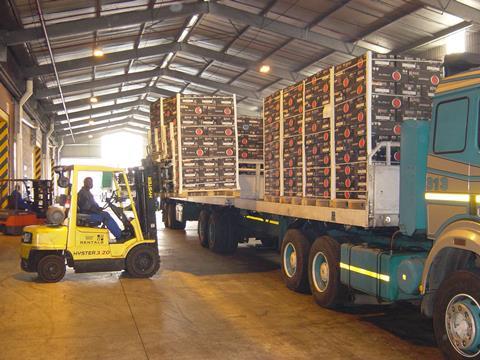Observers ask port operator Transnet to extend private sector involvement to other ports in the country.

The South African fruit sector has broadly welcomed the announcement of private sector involvement in the port of Durban’s Container Terminal, South Africa’s biggest export port, which many exporters claiming the country’s logistical woes will only be resolved if similar is taken in other export ports.
South Africa’s transport authority, Transnet, last week announced that an international terminal operator, International Container Terminal Services Inc. (ICTSI), has been selected as its equity partner at Durban’s Pier 2.
Durban Container Terminal’s Pier 2 is Transnet’s biggest container terminal, handling 72 per cent of the Port of Durban’s throughput and 46 per cent of South Africa’s port traffic.
Port users in the Eastern Cape and Western Cape have now said similar steps should be taken in Coega, near Port Elizabeth and in Cape Town. They point out that all South African ports consistently suffer from logistical inefficiencies which needs to be resolved.
The export industry in the Western Cape again this year experienced disruption and delays which it believes can only be resolved by private sector involvement in the management of the port.
The Cape Town Container Terminal has its own unique set of problems, of which the positioning of the port in Cape Town’s notorious wind belt is one. Once again this year this caused delays in operations and vessels entering and leaving the port, resulting in damage to fruit quality.
Durban is the most important port for South African citrus, while Cape apple and pear exporters, as well as table grape exporters, also use the port for shipments to the Far and Near East. This is because they simply do not have enough direct shipping opportunities via the port of Cape Town.
The citrus industry has described the Transnet announcement as good news all round. “Good news for labour, business and government,” said the Citrus Growers’ Association (CGA) CEO Justin Chadwick.
“This is good news for labour in the short term as DCT Pier 2 employees will be seconded to the new entity – with no retrenchments and the same terms and conditions as before. It is especially good news for port labour in the long term as the new partner will help reposition and implement best practice performance ensuring growth in volume throughput.”
Chadwick said increased volume throughput would result in more employment, not only at DCT but also for ancillary goods and services. “It is also good news for the Durban economy which relies heavily on a well-functioning port to boost business.”
He noted that a well-functioning Durban port also benefits people employed in the sectors that use the port to export and import cargo – an effective and efficient port is essential for export sectors such as vehicles, mining and agriculture. “It is good news for business as the present trajectory of port performance was concerning,” he said.
Chadwick claimed the new partnership will result in attention being given to equipment, infrastructure, and management, noting that: “The new partner has a good track record of running efficient ports around the globe”.
Chadwick described the move as an important step for the South African government, which desperately needs the logistics sector to function efficiently to increase work opportunities and boost the economy. “There have been concerns about cargo moving to ports in Mozambique and Namibia. Once cargo is lost it is difficult to attract it back to South African ports,” he said.
According to the CGA CEO, Durban port is now poised to continue as the gateway to Africa because the port has so many advantages over other options, especially now that the main freeway to Gauteng has been upgraded.
Observers said pressure will continue on Transnet to take similar steps in other ports. At the same time pressure is also mounting on Transnet to improve its rail network. The CGA has already asked the government to address the matter.
In the latest developments leading figures in the African National Congress (ANC), one of them the Government’s Enterprises Minister, have openly clashed about the state of the rail system which is seen as a leading component of an effective internal logistics system.



